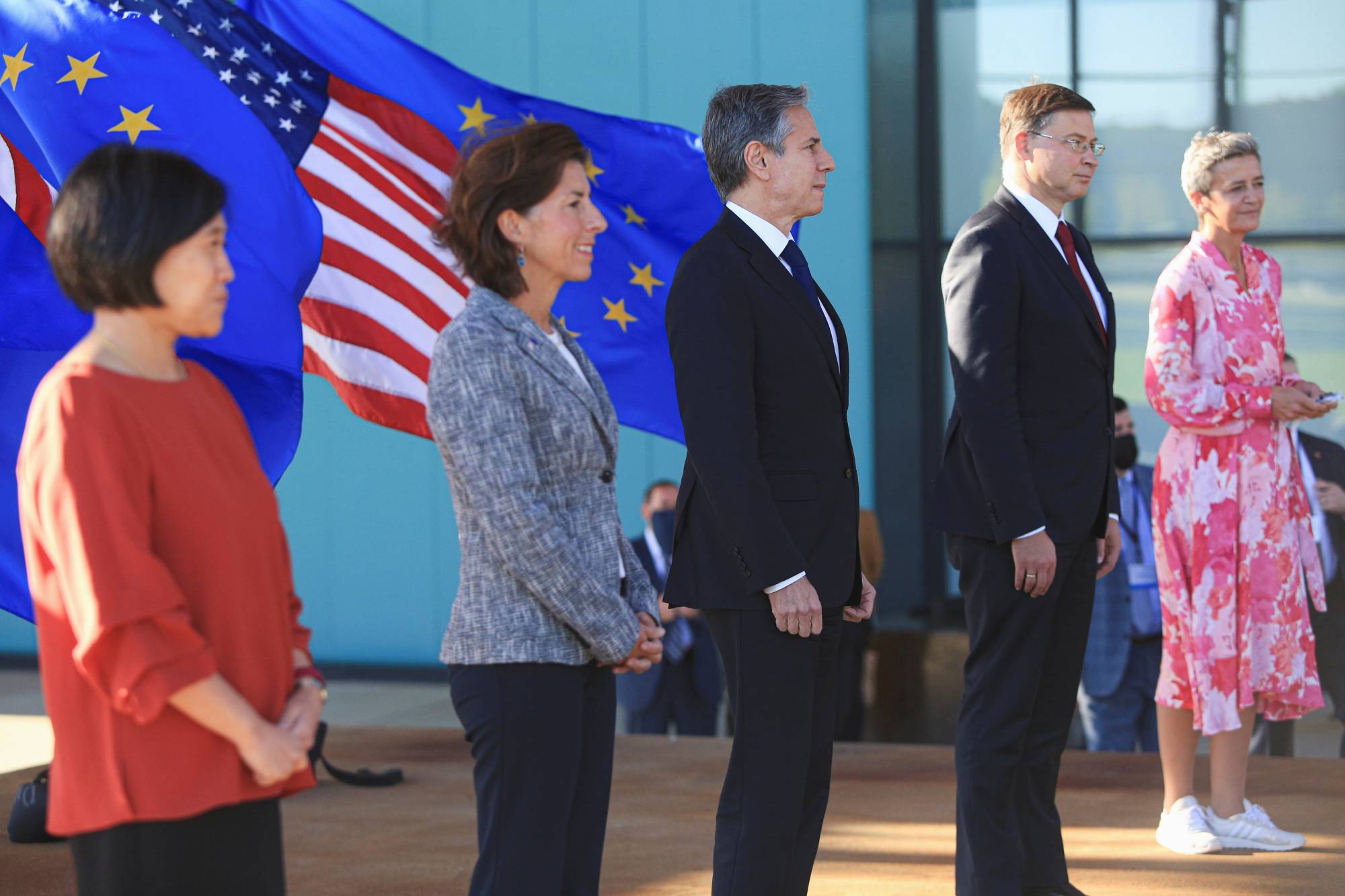The launch last week of the U.S.-EU Trade and Technology Council (TTC) is, potentially, a big deal. The EU’s readiness to proceed, despite French efforts to delay the meeting, shows the importance both sides attach to this initiative, and for good reason: The centrality of new technologies to our future, defining both the quality of our lives and the way that the world is run, demands a thoughtful and coordinated approach to their use.
European officials proposed a technology-centered trans-Atlantic dialogue in December 2000 to reinvigorate a relationship that had been strained under President Trump. The Biden team was eager to take up the offer, to rebuild that partnership and to ensure that tech focus. The TTC was announced last summer, during Biden’s visit to Brussels, and scheduled to hold its first meeting with top commerce, trade and foreign affairs officials in Pittsburgh on Sept. 29.
The announcement of the Australia-U.K.-U.S. (AUKUS) “enhanced trilateral security partnership” last month and the associated cancellation of the Australia-France submarine deal infuriated Paris, which sought to postpone the inaugural TTC meeting. Cooler heads prevailed in Brussels and the conference went ahead as planned.


















With your current subscription plan you can comment on stories. However, before writing your first comment, please create a display name in the Profile section of your subscriber account page.